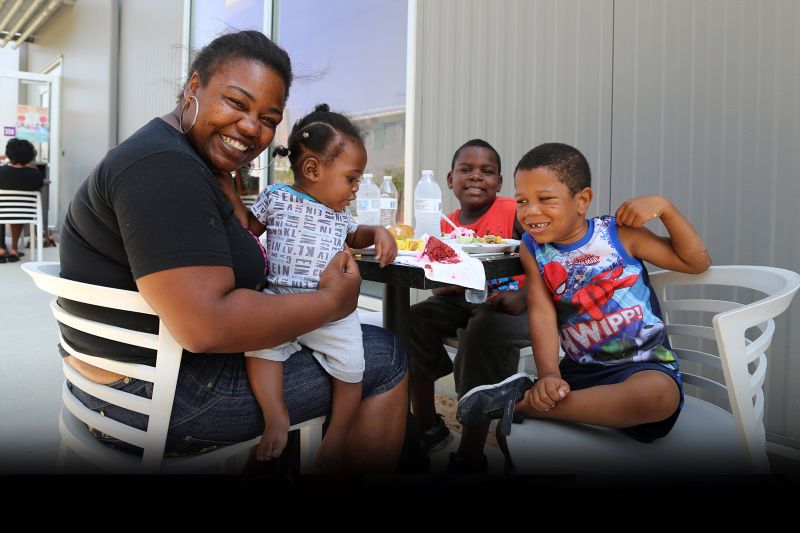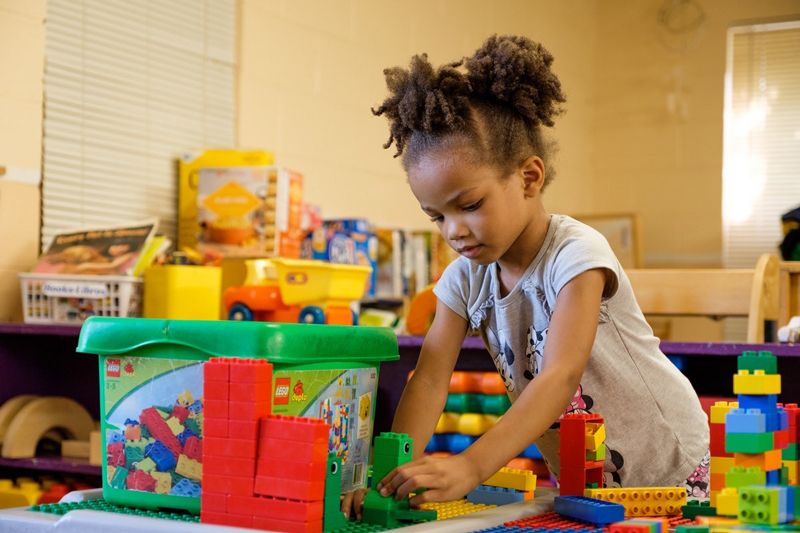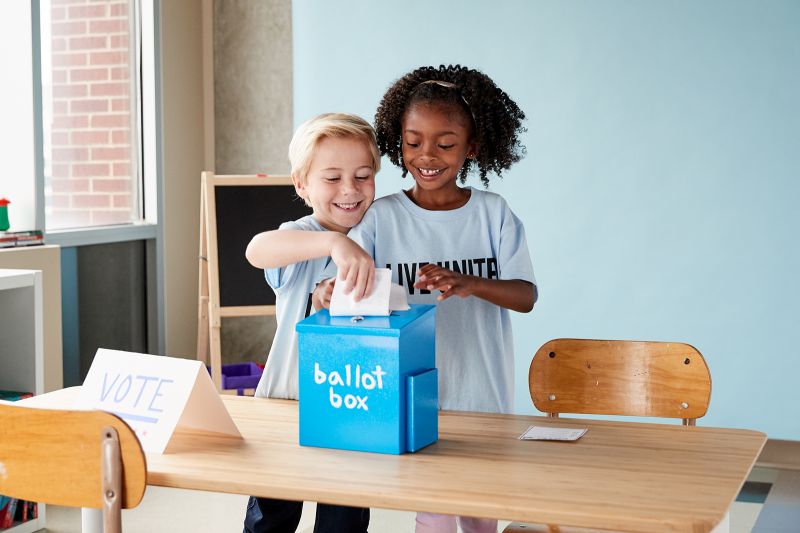Two Ways We Can Work Together to Prevent Child Abuse in North Texas

April is National Child Abuse Prevention Month, an important reminder that we must all come together to prevent child abuse. United, we can ensure all North Texas families have access to the support, community resources and knowledge necessary to create safe, happy homes for their children.
At United Way of Metropolitan Dallas, we recognize child abuse prevention as a fundamental component of our mission to improve access to education, income and health. A stable, loving home benefits children throughout life, creating a foundation for them to achieve good physical and mental health, success in school and, later, financial stability.
Throughout National Child Abuse Prevention Month, we’re encouraging all North Texans to join us in raising awareness about the importance of child abuse prevention and get involved in United Way programs that support safe home environments.
Read on to learn more about the state of child abuse in Texas, how United Way of Metropolitan Dallas works to prevent child maltreatment and how you can get involved in this important work.
Child Abuse Continues to Be a Priority in Texas
Sadly, rates of child abuse increased slightly over the last year, with more than 54,000 confirmed victims of child abuse across our state, according to the Texas Department of Family and Protective Services. Nearly 100 children died as a result of abuse and neglect.
Our region has plenty of room for improvement. Dallas County had the fourth-highest number of deaths due to child abuse and neglect in Texas. In 2024, the incidence of child abuse in Dallas County increased compared to the year prior, with 4,889 children being served by Child Protective Services.
These figures all indicate that North Texas must come together to prevent child abuse and neglect before it ever begins.
Together, We Can Address the Causes of Child Abuse
A variety of factors can contribute to child abuse and neglect; however, many researchers agree that stress, tiredness or lack of parenting skills or family/community support are often present when child abuse occurs. For parents of all backgrounds and income levels, the pressures of caring for a child can become overwhelming, which can lead to abuse.
The good news is that parental education and support programming directly benefits parents and prevents abuse. As part of our mission to improve access to education, income and health, we work to empower parents, enable caregivers to foster healthy, caring home lives and eliminate common parenting stressors that increase the risk for child abuse and neglect.
United Way has been the lead organization on home visiting in Dallas County since 2012. Each year, we serve thousands of caregivers in North Texas, giving parents the tools and knowledge they need to ward off child abuse and neglect before it ever happens.
Two of our programs focus specifically on supporting families with young children:
- Healthy Outcomes Through Prevention and Early Support (HOPES): HOPES supports local parents as they create home environments in which young children can thrive. Working with clinics, organizations and government agencies, the program seeks to reduce instances of child maltreatment by helping improve parenting skills through instruction, support and connections to community resources.
- Texas Home Visiting Program: Texas Home Visiting Program supports people in becoming great parents. This free program for soon-to-be-parents and those with children under the age of 5 matches Dallas and Collin County families with a trained home visitor—a nurse, experienced parent, trained professional or volunteer—to answer questions, offer advice, provide support and teach parents how to prepare their kids for kindergarten.
During our last fiscal year, more than 3,000 local families participated in a home visiting program through HOPES or Texas Home Visiting Program, benefiting parents, children and the community as a whole. For example, preventing child abuse saves our state significant amounts of money. Serving a single child in the foster care system for a year costs the state of Texas $17,290, which is 17 times the amount our child abuse prevention programming costs to serve one family.
HOPES and Texas Home Visiting Program also have a profound impact on new parents, as well as any family that experiences stressful times. Take for example this client story from our community impact partner Family Care Connection.
Since joining Family Care Connection in September 2024, this remarkable caregiver has shown unwavering dedication to learning, growing and providing the best for her four children. From the very beginning, she eagerly participated in every opportunity, always making herself available for visits and actively engaging in the program. At first, she joined with one child, but soon after, she became pregnant with her second. As life unfolded, she faced significant challenges: Her marriage became unstable and, despite her efforts to rebuild it through spiritual ministry and counseling, only she completed the sessions. Eventually, her husband became incarcerated, leaving her to navigate motherhood on her own.
Her parent educator at Family Care Connection reported, “Through it all, she has remained incredibly strong, independent and resourceful. She never allowed obstacles to define her journey. She sought support, worked hard and ensured that her children have everything they need. She expresses deep gratitude for this program, not just for the resources and support it provides but for the recognition it gives her as a woman, a mother and an individual striving for a better future. As her parent educator, watching her resilience and commitment to her children’s well-being has been truly inspiring.”
Experiences like this demonstrate the power of parent education programs like HOPES and Texas Home Visiting Program. Despite this woman going through extreme stressors and challenges, her work with her parent educator provided the knowledge, support and resources she needed to parent in a positive and constructive way.
Let’s Unite to Prevent Child Abuse
Child abuse cases remain high in North Texas, and we believe every child deserves protection. Join us as we work to prevent child abuse across our region. Here are two ways to get involved right now:
- Advocate for strong families. Sign up here to receive our Advocacy Alerts and sign up for our new Policy in Brief newsletter. We’ll let you know how and when to contact your lawmakers to advocate for initiatives that prevent child abuse—for example, HOPES and Texas Home Visiting Program.
- Make a donation to support child abuse prevention. When you invest in United Way, you create lasting change right here at home. Your donation will help support programs like HOPES and Texas Home Visiting Program and ensure all North Texas children have the opportunity to thrive. Click here to donate.
Suspect Child Abuse?
If you suspect abuse or neglect, contact the Texas Department of Family and Protective Services toll-free at 1-800-252-5400, 24 hours a day, seven days a week. You can also file a report via their Abuse Hotline website.
Need Support?
If you are a parent who is struggling with keeping your children safe and healthy, please contact one of our partner agencies for resources and support:
- Abide Women’s Health Services
- AVANCE North Texas
- ChildCareGroup
- Dallas Independent School District HIPPY (Home Instruction for Parents of Preschool Youngsters)
- Family Care Connection
- Lumin Education
- Metrocare Services
Tags

Join Us for Fit Family Fest
Fit Family Fest is a free event that will connect North Texas families with health screenings, fun activities and entertainment, helpful programs and services, job recruitment and training programs, and more on Saturday, April 26 at Dallas Market Hall. Click below to learn more.

Invest in North Texas Kids
Together, we can ensure local parents have the resources and support necessary to ensure children can thrive. Your donation funds programs like HOPES and Texas Home Visiting Program, which encourage healthy child development and strong families across North Texas.


